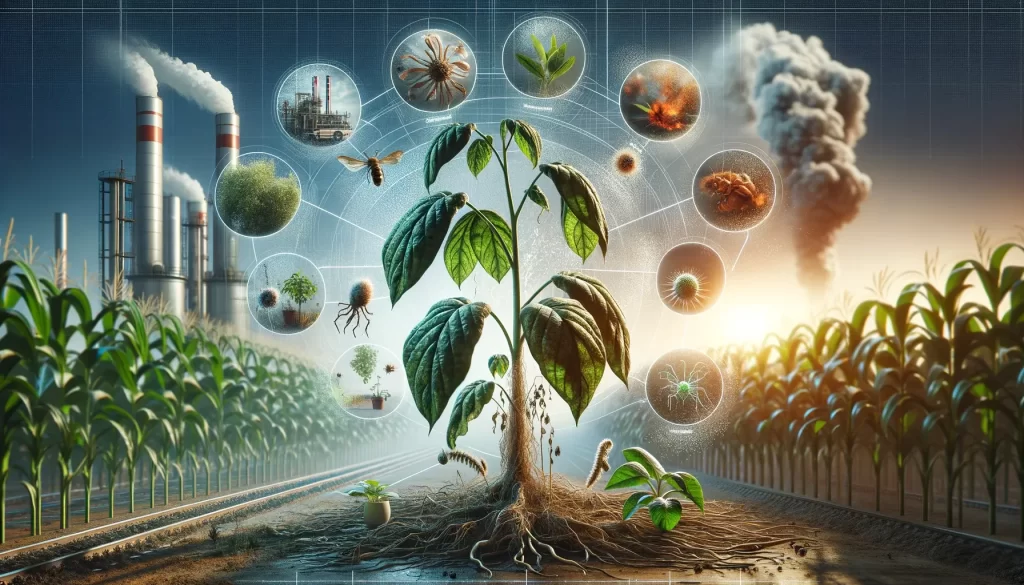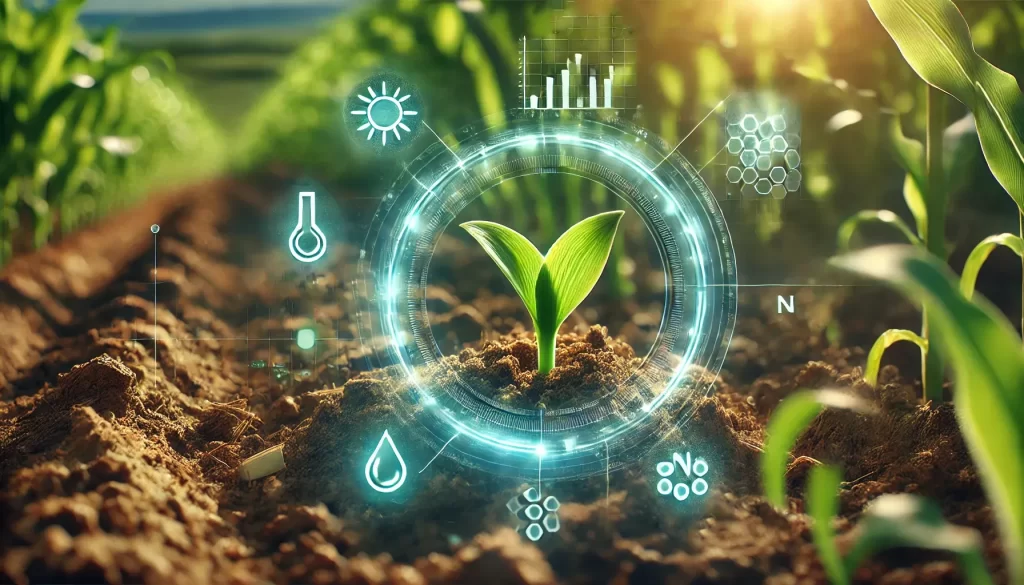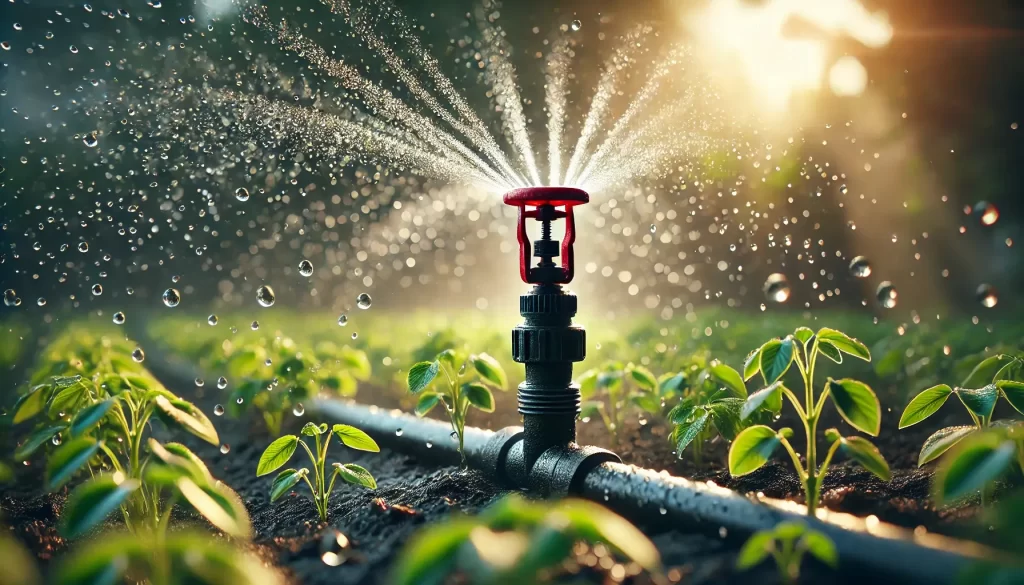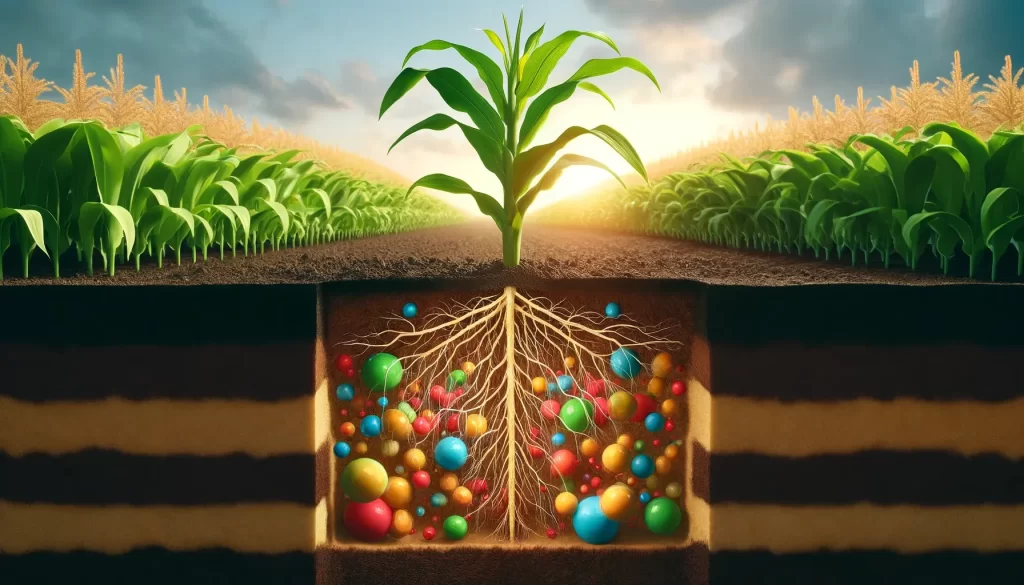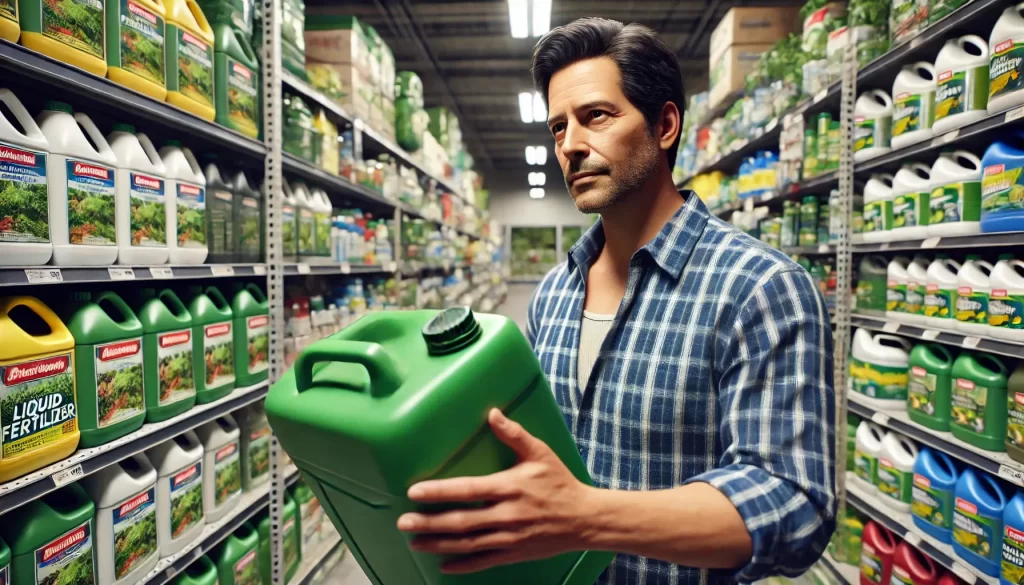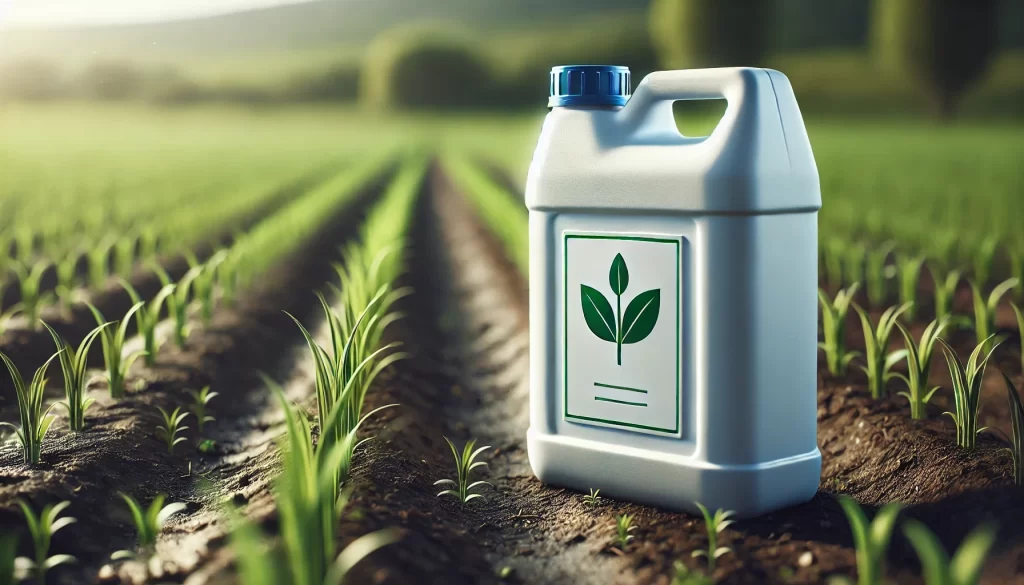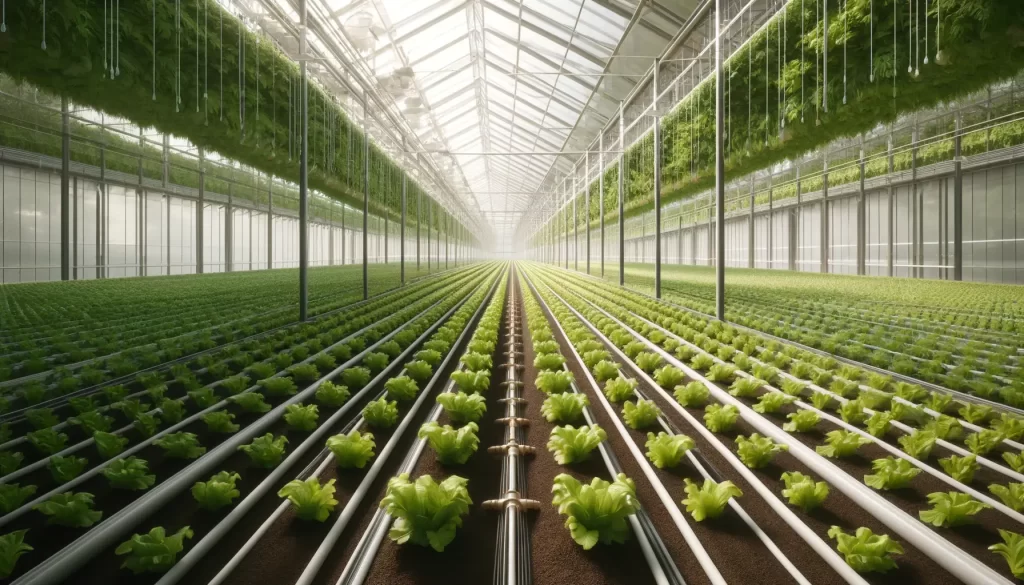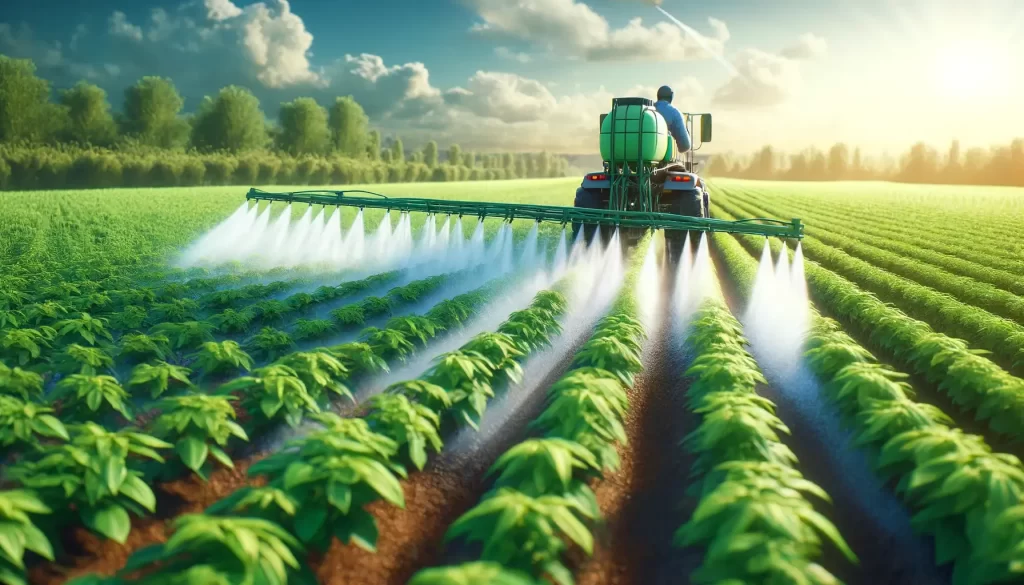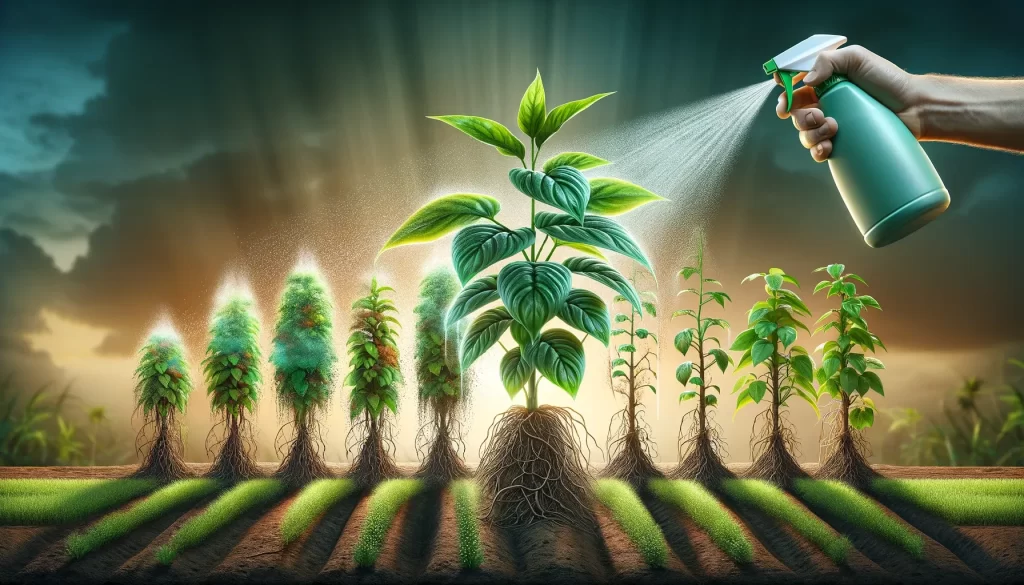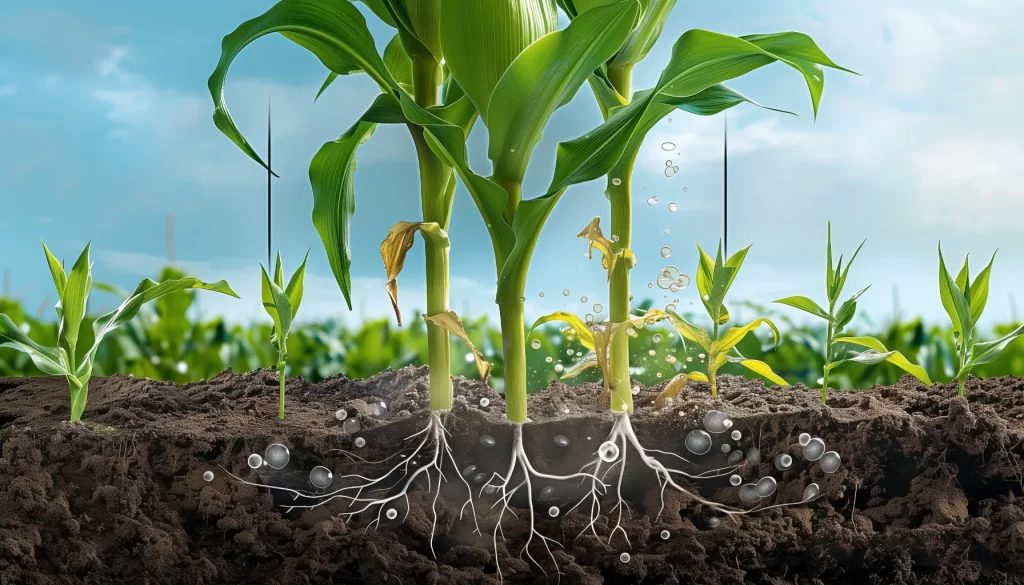What is Stress? What Types of Stress Do Plants Experience?
Plants experience stress just like humans. This stress can be caused by environmental factors, diseases, pests or human activities. Stress can negatively affect the growth, development and production of plants.
The most common types of stress experienced by plants are:
- Environmental Stress: Factors such as drought, flood, extreme heat, extreme cold, salt stress, light stress, air pollution are considered environmental stress.
- Biotic Stress: Factors such as plant diseases, harmful insects, weeds are considered biotic stress.
- Anthropogenic Stress: Factors such as pollution, soil destruction, and excessive irrigation resulting from human activities are considered anthropogenic stress.
What are the Effects of Plant Stress?
Plant stress can cause many negative effects. These effects are:
- Regression in Growth and Development: Stressed plants grow and develop more slowly than normal. This condition manifests itself with symptoms such as yellowing, wilting and falling of the leaves.
- Decrease in Yield: Stressed plants give less yield than normal. This leads to a decrease in the size, quality and nutritional value of fruits and vegetables.
- Increased Susceptibility to Diseases and Pests: Stressed plants become more susceptible to diseases and pests. This causes plants to get sick more easily and become infested with harmful insects.
- Death: Excessive stress can cause plants to die.
The Importance of Liquid Fertilizers on Plant Stress Tolerance
Liquid fertilizers are an important tool in increasing the stress tolerance of plants. plays a role. Liquid fertilizers provide plants with the necessary nutrients quickly and easily. These nutritional elements increase the resistance of plants to stress and reduce the damages caused by stress.
The mechanisms of liquid fertilizers in increasing plant stress tolerance are as follows:
- Creating Nutrient Deficiency: Plants need more nutrients when under stress. Liquid fertilizers meet this need of plants and eliminate nutrient deficiency.
- Increasing Antioxidant Levels: Liquid fertilizers increase antioxidant levels in plants. Antioxidants prevent cellular damage caused by free radicals and increase plants’ resistance to stress.
- Supporting Osmotic Regulation: Liquid fertilizers support osmotic regulation in plants. Osmotic regulation helps maintain water balance in plants’ cells, which increases resistance to stress.
- Adapting Hormone Production: Liquid fertilizers help regulate the production of stress hormones in plants.
Liquid fertilizers utilize different mechanisms to increase plants’ tolerance to various stress factors. In this section, we will examine in more detail how liquid fertilizers increase plant stress tolerance.
How Do Nutrient Elements Increase Tolerance to Stress
Plants need various nutritional elements to develop healthily and be resistant to stress. Each of these nutrients allows plants to respond differently to stress.
- Macro Nutrient Elements: Nitrogen (N), Phosphorus (P), Potassium (K), Calcium (Ca), Magnesium (Mg) and Sulfur (S) are called macronutrient elements. These are essential nutrients required in large quantities for plant growth.
- Nitrogen (N): Nitrogen, which is necessary for the protein and chlorophyll synthesis of plants, plays a critical role in the repair of plant tissues and new tissue formation under stress.
- Phosphorus (P): Phosphorus, which is important for energy transfer and cell envelope structure, supports the energy production of plants against stress and protects the integrity of cell envelopes.
- Potassium (K): Potassium, which regulates water retention and controls the opening and closing of stomata of plants, increases the tolerance of plants to stress by reducing water loss in situations such as drought stress.
- Calcium (Ca): Calcium, which plays an important role in the cell wall structure, helps plants to be more mechanically resistant to stress.
- Magnesium (Mg): Magnesium, found in the chlorophyll structure, increases the photosynthesis capacity of plants and reduces stress-related growth retardation.
- Sulfur (S): Sulfur, which is necessary for protein synthesis and enzyme activities, strengthens the defense mechanisms of plants against stress.
- Micro Nutrient Elements: Iron (Fe), Manganese (Mn), Zinc (Zn), Boron (B), Molybdenum (Mo), Copper (Cu) and Chlorine (Cl) micronutrients are called elements. These are nutrients that are required in smaller amounts for plant growth but are still vital.
- Iron (Fe): Iron, which plays a role in chlorophyll synthesis, helps plants maintain their photosynthetic capacity by reducing stress-related chlorophyll loss.
- Manganese (Mn): Manganese, which is important for enzyme activities, strengthens the antioxidant defense systems of plants against stress.
- Zinc (Zn): Zinc, found in enzyme activities and hormone structure, helps plants maintain their hormone balance against stress and continue their growth processes.
- Boron (B): Boron, which is necessary for cell wall structure and pollen germination, supports important functions of plants such as fruit and seed setting against stress.
- Molybdenum (Mo): Molybdenum, which is necessary for nitrogen fixation and enzyme activities, regulates nitrogen metabolism against stress, especially in legumes.
- Copper (Cu): Copper, which plays a role in the defense mechanisms of plants, increases resistance to stress, diseases and pests.
- Chlorine (Cl): Chlorine, which is important for stomatal movement and osmotic balance, increases plants’ tolerance to stress by regulating water retention in situations such as drought stress.
Liquid fertilizers contain the macro and micro nutrients needed by plants in a balanced manner. In this way, plants can easily access the necessary nutrients when exposed to stress and become more resistant to stress.
Role of Hormones and Osmolytes
Liquid fertilizers not only provide the nutrients that plants need, but may also contain components that support plants’ own defense mechanisms against stress. Some of these components are:
- Hormones: Plants try to protect themselves by producing various hormones when exposed to stress. Natural or synthetic hormones contained in liquid fertilizers can strengthen the effect of hormones produced by plants themselves. For example, some natural hormones obtained from algae have the effect of increasing the root development and stress tolerance of plants.
- Osmolytes: Plants under stress increase the amount of low-molecular organic compounds called osmolytes in their cells. These compounds regulate water retention, reducing stress-related water loss of plants and increasing the resistance of cells to stress. Some liquid fertilizers support the natural osmolyte production mechanism of plants, thanks to artificially added osmolytes.
Antioxidants and Stress Tolerance
Plants produce harmful molecules called free radicals in situations of stress. These molecules cause damage by causing oxidative stress in plant tissues. Liquid fertilizers may be enriched with antioxidants. Antioxidants protect plant tissues from oxidative stress by destroying free radicals and reduce stress-related damage. For example, natural ingredients such as humic substances and vitamins can be added to liquid fertilizers to increase their antioxidant capacity.
Effects of Liquid Fertilizers Against Different Types of Stress
The effects of liquid fertilizers in increasing plant stress tolerance may also vary depending on the type of stress. Below, we will examine how liquid fertilizers provide benefits against the most common stressors:
- Drought stress: Liquid fertilizers help plants lose less water under drought stress because they contain elements such as potassium and chlorine that regulate water retention of plants. Additionally, if liquid fertilizers can contain ingredients that promote root development, they can also increase plants’ ability to absorb water from deeper in the soil.
- Salt stress: Salt stress occurs when dissolved salts in the soil prevent plants from absorbing water. Liquid fertilizers can increase plant tolerance to salt stress if they can contain components that support the osmotic regulation of plants.
- Heat stress: High temperature stress negatively affects growth and development by disrupting the enzyme activity of plants. Liquid fertilizers may contain ingredients that can help plants maintain their metabolic activity under heat stress. For example, some algae extracts have an increasing effect on the resistance of plants to heat stress.
- Cold stress: Low temperature stress causes ice crystals to form in the cells of plants, leading to tissue damage. If liquid fertilizers can contain elements such as calcium that strengthen the cell wall structure of plants, they can increase the resistance of plants to cold stress.
As a result, liquid fertilizers have a versatile effect in increasing the resistance and tolerance of plants to stress. Thanks to components such as balanced nutritional content, hormones, osmolytes and antioxidants, liquid fertilizers contribute to a healthy and sustainable agriculture by reducing the stress-related yield loss of plants.
How to Choose the Right Liquid Fertilizer?
It is important to choose the right liquid fertilizer to increase your plants’ stress tolerance. When choosing, you should consider these factors:
- Plant Type: Different plant species need different nutrients. The liquid fertilizer you choose should suit the specific needs of the plant you are growing. For example, while a potassium-based liquid fertilizer is preferred for tomato plants, it would be more beneficial to choose a nitrogen-based liquid fertilizer for corn plants.
- Soil Analysis: Soil analysis determines the amount of nutrients present in the soil. In this way, you can determine which nutritional elements your plants are deficient in. According to the soil analysis results, you should choose liquid fertilizers that contain the missing nutrients. As Greenlive, you can get support from our expert team on soil analysis.
- Stress Factors: You need to determine the stress factors your plants are exposed to. For example, if you are under drought stress, you should prefer liquid fertilizers containing potassium and chlorine, which regulate water retention. If you have a salinity problem, it would be better to turn to liquid fertilizers containing components that support osmotic balance.
As Greenlive, we offer liquid fertilizers specially formulated for the needs of different plant species and various stress factors within our wide product range. Our technical service teams can visit your lands, conduct soil analysis and recommend the most suitable liquid fertilizer solution for you.
Liquid Fertilizer Application Techniques
It is important to use correct application techniques for the best use of liquid fertilizers by plants. Liquid fertilizer application methods include:
- Leaf Fertilization: In this method, liquid fertilizer is sprayed directly on the leaves of the plants. Leaf fertilization allows plants to absorb nutrients quickly and is especially preferred in emergency situations.
- Application with Drip Irrigation: In drip irrigation systems, liquid fertilizer is mixed with irrigation water and delivered directly to the roots of the plants. This method ensures that plants receive the nutrients they need in a controlled manner and is also beneficial in terms of water saving.
- Soil Application: In this method, liquid fertilizer is poured directly onto the soil surface or mixed with water and applied to the soil. Soil application increases microbial activity in the soil and provides long-term nutritional supplementation.
Liquid Fertilization Time and Dosage
The timing and dose of liquid fertilizer application may vary depending on plant species, stress factors and climatic conditions. In general, it is recommended to apply liquid fertilizer during the growth and development periods of plants. In cases of stress, liquid fertilizer can be supplemented more frequently depending on the needs of the plants. It is important to adjust the liquid fertilizer dose according to the rates specified on the product labels. Overapplication may cause damage to plants.
Our Greenlive Technical Service teams can provide you with accurate information about liquid fertilizer application time and dose and support you during the application process.
Benefits of Using Liquid Fertilizer
Liquid fertilizers have many important benefits as well as increasing the resistance and tolerance of plants to stress. We can list these benefits as follows:
- Yield Increase: Thanks to its balanced nutritional content, liquid fertilizers enable plants to grow and develop in a healthier way. This leads to an increase in the yield of fruits and vegetables.
- Increasing Product Quality: Liquid fertilizers increase the quality characteristics of products by ensuring that plants absorb nutrients better. For example, fruits and vegetables can be made larger, tastier and more durable.
- Increased Resistance to Plant Diseases and Pests: Healthy plants are more resistant to diseases and pests. Liquid fertilizers strengthen the defense mechanisms of plants and increase their natural resistance to diseases and pests. In this way, it reduces the need for chemical pesticide use.
- Protection of Soil Health: Excessive use of chemical fertilizers reduces microbial activity in the soil and impairs soil health. Liquid fertilizers generally contain organic substances and support microbial life in the soil. In this way, soil fertility is preserved in the long term.
- Environmentally friendly Agriculture: Controlled application of liquid fertilizers reduces environmental pollution. Additionally, liquid fertilizers save water by increasing water retention in the soil. Thanks to these features, liquid fertilizers have an important place in environmentally friendly agricultural practices.
With Greenlive Liquid Fertilizers, you can benefit from many important benefits by increasing the stress tolerance of your plants. Thanks to our rich product range, we offer solutions for the needs of different plant species and various stress factors. Our products help plants grow and develop healthily, providing you with high efficiency and quality products. At the same time, you contribute to an environmentally friendly agricultural practice by preserving soil health.
To get more information and to have detailed information about Greenlive Liquid Fertilizer solutions, contact us now! Our expert team can visit your lands, analyze the soil and create the most suitable liquid fertilizer program for you.
As a result, liquid fertilizers are one of the cornerstones of a healthy and productive agriculture by increasing the resistance of plants to stress. As Greenlive, we are proud to be with you on your sustainable agriculture journey by offering you the highest quality liquid fertilizers and expert technical support.
Frequently Asked Questions (FAQ)
How do liquid fertilizers increase the resistance of plants to stress?
Liquid fertilizers increase the resistance of plants to stress through various mechanisms. These mechanisms are:
- Nutrient elements: Macro and micronutrient elements enable plants to respond differently to stress. For example, nitrogen is essential for protein and chlorophyll synthesis and plays a critical role in the repair of plant tissues and new tissue formation under stress. Potassium regulates water retention and reduces water loss of plants in situations such as drought stress by controlling stomatal opening and closing.
- Hormones: Natural or synthetic hormones found in liquid fertilizers can strengthen the effect of the hormones produced by plants themselves. For example, some natural hormones obtained from algae have the effect of increasing the root development and stress tolerance of plants.
- Osmolytes: Plants under stress increase the amount of low-molecular organic compounds called osmolytes in their cells. These compounds reduce stress-related water loss of plants by regulating water retention and increase the resistance of cells to stress.
- Antioxidants: Plants produce harmful molecules called free radicals in cases of stress. These molecules cause damage by causing oxidative stress in plant tissues. Liquid fertilizers may be enriched with antioxidants. Antioxidants protect plant tissues from oxidative stress by destroying free radicals and reduce stress-related damage.
What stress factors can I use liquid fertilizer against?
Liquid fertilizers can be used against many stress factors that plants are exposed to. Some of these are those:
- Drought stress: Liquid fertilizers help plants lose less water under drought stress because they contain elements such as potassium and chlorine that regulate water retention of plants. Additionally, if liquid fertilizers can contain ingredients that promote root development, they can also increase plants’ ability to absorb water from deeper in the soil.
- Salt stress: Salt stress occurs when dissolved salts in the soil prevent plants from absorbing water. Liquid fertilizers can increase plant tolerance to salt stress if they can contain components that support the osmotic regulation of plants.
- Heat stress: High temperature stress negatively affects growth and development by disrupting the enzyme activity of plants. Liquid fertilizers may contain ingredients that can help plants maintain their metabolic activity under heat stress. For example, some algae extracts have an increasing effect on the resistance of plants to heat stress.
- Cold stress: Low temperature stress causes ice crystals to form in the cells of plants, leading to tissue damage. If liquid fertilizers can contain elements such as calcium that strengthen the cell wall structure of plants, they can increase the resistance of plants to cold stress.
For which plants can liquid fertilizer be used?
Liquid fertilizers can be used for a variety of plant species. It is important to remember that different plant species need different nutrients. The liquid fertilizer you choose should suit the specific needs of the plant you are growing. For example, while a potassium-based liquid fertilizer is preferred for tomato plants, it would be more beneficial to choose a nitrogen-based liquid fertilizer for corn plants.
When and how should liquid fertilizer be applied?
The timing and dose of liquid fertilizer application may vary depending on plant species, stress factors and climatic conditions. In general, it is recommended to apply liquid fertilizer during the growth and development periods of plants. In cases of stress, liquid fertilizer can be supplemented more frequently depending on the needs of the plants. It is important to adjust the liquid fertilizer dose according to the rates specified on the product labels. Overapplication may cause damage to plants.
Application methods of liquid fertilizers are as follows:
- Leaf Fertilization: In this method, liquid fertilizer is sprayed directly on the leaves of the plants. Leaf fertilization allows plants to absorb nutrients quickly and is especially preferred in emergency situations. However, it should be applied carefully as it may cause burning on the leaves.
- Application with Drip Irrigation: In drip irrigation systems, liquid fertilizer is mixed with irrigation water and delivered directly to the roots of the plants. This method ensures that plants receive the nutrients they need in a controlled manner and is also beneficial in terms of water saving.
- Soil Application: In this method, liquid fertilizer is poured directly onto the soil surface or mixed with water and applied to the soil. Soil application increases microbial activity in the soil and provides long-term nutritional supplementation.
Does excessive use of liquid fertilizer poison plants?
Liquid fertilizers have a low risk of poisoning plants as long as the doses stated on the label are not exceeded. However, excessive use may increase the salinity of the soil, making it difficult for plants to absorb water and causing the plant to become stressed. Therefore, it is important to have a soil analysis and choose the right product and dose according to the needs of the plant.
Is the use of liquid fertilizer environmentally friendly?
Controlled application of liquid fertilizers reduces environmental pollution. Unlike traditional fertilizers, liquid fertilizers adhere more easily to the soil and the risk of leaching decreases. Additionally, some liquid fertilizers contain organic matter and support microbial life in the soil. However, caution should still be exercised. Failure to comply with the user manual and overdose may result in environmental pollution.
What is the difference between liquid fertilizer and chemical fertilizers?
Although liquid fertilizers and chemical fertilizers meet the nutrients that plants need, there are some differences between them:
- Chemical Structure: While liquid fertilizers generally consist of water-soluble mineral salts, chemical fertilizers may contain more complex chemical structures.
- Nutrient Distribution: Liquid fertilizers generally contain macro and micro elements in a balanced manner. Chemical fertilizers generally contain a single nutrient predominantly (for example, urea fertilizer is nitrogen-based).
- Quickness: Liquid fertilizers are absorbed more quickly by plants. It may take time for chemical fertilizers to transform into minerals in the soil.
- Environmental Impact: When used in a controlled manner, liquid fertilizers have less environmental impact than chemical fertilizers.
Can homemade liquid fertilizer be used?
Homemade liquid fertilizers are less effective than commercial liquid fertilizers. However, liquid fertilizers made from organic materials such as compost tea can provide benefits that increase soil microbial activity and support plant growth. However, the scientifically proven net effects of these methods may be limited. In the production processes of commercial liquid fertilizers, more advanced methods are used, such as mixing all the nutritional elements needed by plants in the correct proportions and applying stabilization processes.
What should I pay attention to when buying liquid fertilizer?
When purchasing liquid fertilizer you should consider the following factors:
- Plant Type: Different plant species need different nutrients. The liquid fertilizer you choose should suit the specific needs of the plant you are growing. For example, while a potassium-based liquid fertilizer is preferred for tomato plants, it would be more beneficial to choose a nitrogen-based liquid fertilizer for corn plants.
- Stress Factors: You need to determine the stress factors your plants are exposed to. For example, if you are under drought stress, you should prefer liquid fertilizers containing potassium and chlorine, which regulate water retention. If you have a salinity problem, it would be better to turn to liquid fertilizers containing components that support osmotic balance.
- Nutritional Content: Carefully examine the label of the liquid fertilizer and look at the ratios of macro and micro elements it contains. Make sure that all the elements your plant needs are present in a balanced manner.
- Organic Content: If you prefer an environmentally friendly approach, you can choose liquid fertilizers that contain organic matter. Organic substances support plant health in the long term by increasing microbial activity in the soil.
- Brand and Manufacturer: It is important to purchase liquid fertilizer from a well-known and reliable brand. The experience and product quality of the manufacturer is important for the effectiveness of your liquid fertilizer.
- Product Label: Read all the information on the product label carefully. Pay attention to information such as the ingredient list of your liquid fertilizer, usage instructions, dosage information and production date.
- Purchase Point: Purchase liquid fertilizers from reliable agricultural suppliers or authorized sales points of manufacturers. In this way, your opportunity to access the right products and receive technical support will increase.
Benefits of Working with a Liquid Fertilizer Expert?
There are many benefits to working with people or companies that specialize in liquid fertilizer. Some of these are those:
- Soil Analysis: Experts can determine the amount of nutrients present in the soil by performing soil analysis on your land. In this way, they can determine which nutritional elements your plants are deficient in and create the most appropriate liquid fertilizer program for you.
- Choosing the Right Product: They can help you choose the liquid fertilizer product that is best for you, considering your plant species, growing environment, and any stress factors you encounter.
- Application Support: It is important to apply liquid fertilizers at the right dose and at the right time. Experts can provide you with information on liquid fertilizer application techniques and support you throughout the application process.
- Yield and Quality Increase: With the right liquid fertilizer program, you can ensure healthier growth and development of your plants, thus increasing your product yield and quality.
As a result, liquid fertilizers have an important place for healthy plant development and high productivity by increasing the resistance and tolerance of plants to stress. Getting help from experts on product selection and application techniques will help you get the most out of liquid fertilizers.



